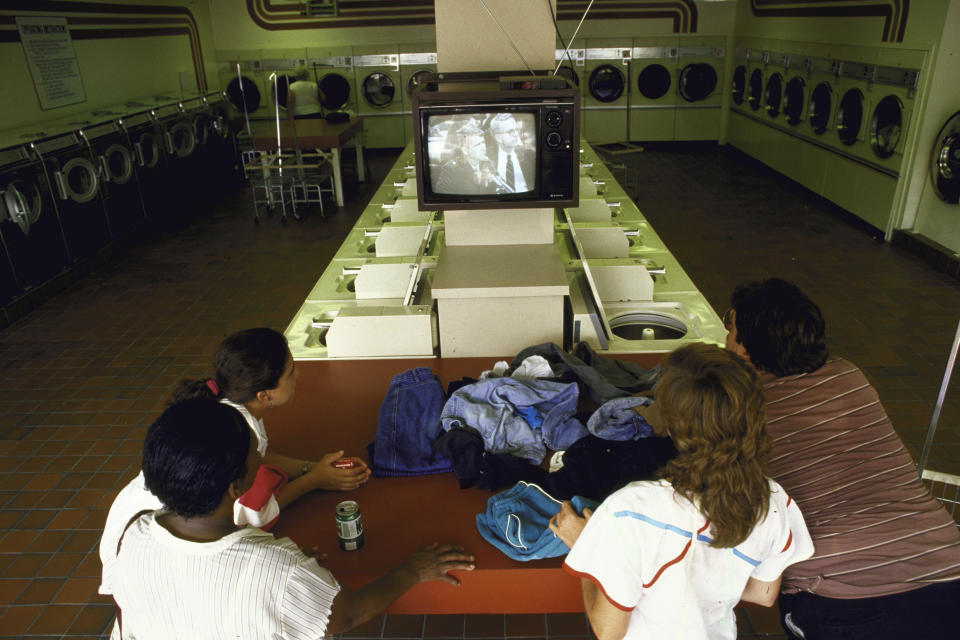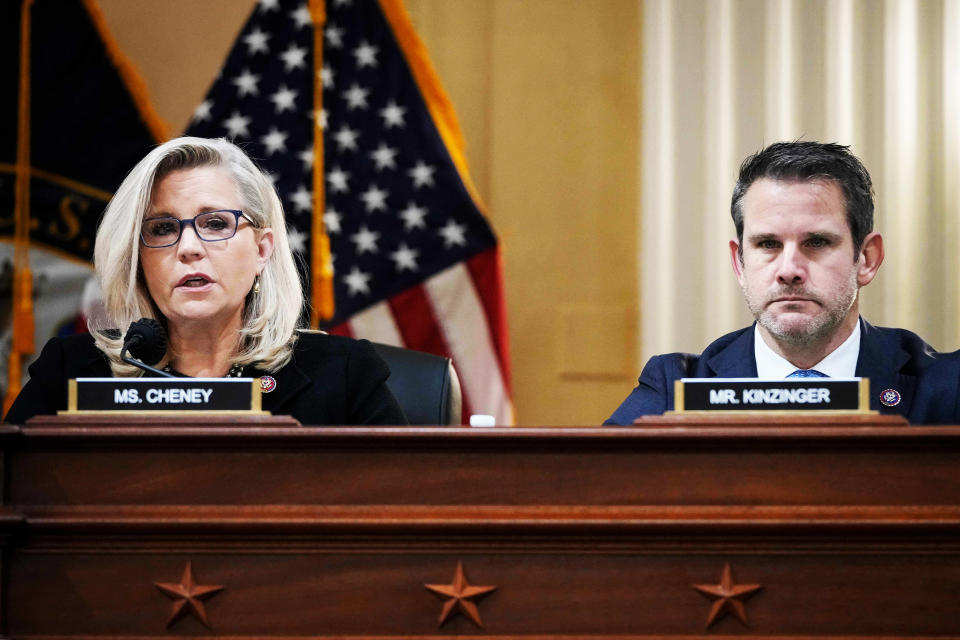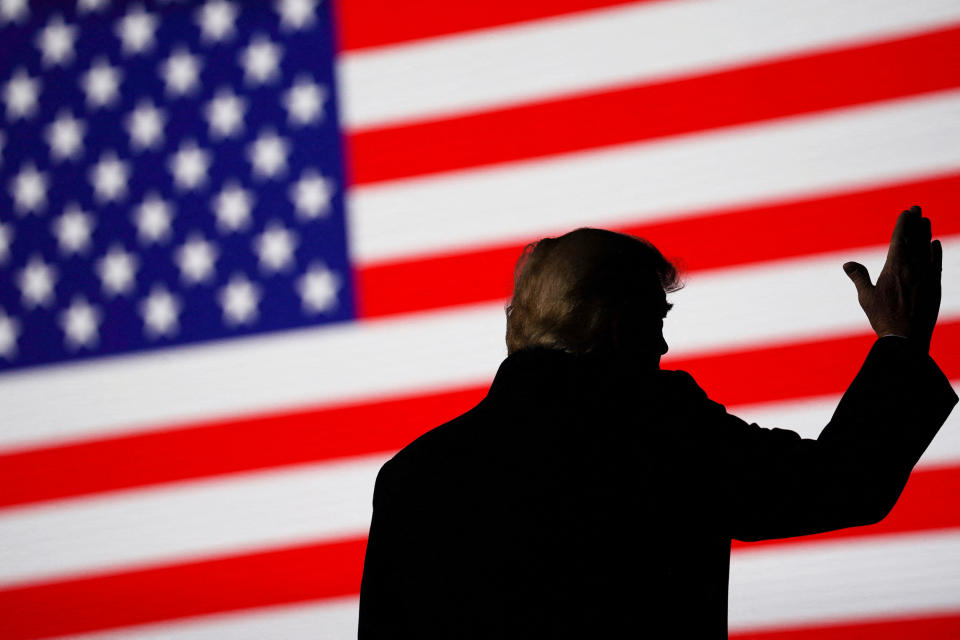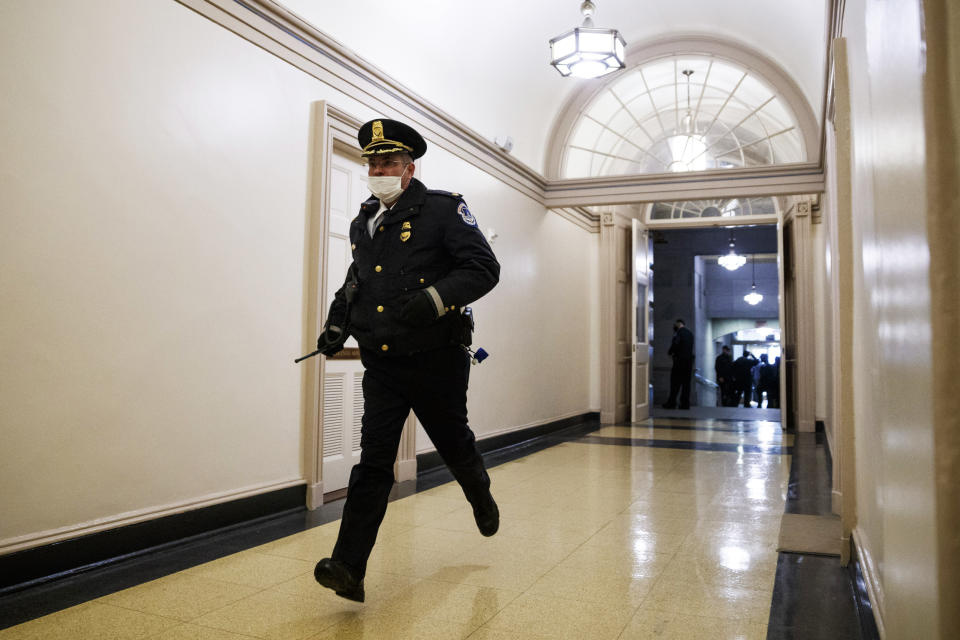Jan. 6 panel looks to design hearings for a public that's heard a lot about Trump
- Oops!Something went wrong.Please try again later.
WASHINGTON — It's a monumental challenge in an era of vanishing attention spans and rabid partisanship.
Somehow, the House committee investigating the Jan. 6 riot on the Capitol must "catch peoples' attention and hold peoples' attention" when it reveals its findings during public hearings planned for the spring, as Rep. Adam Schiff, D-Calif., a member of the panel, put it in an interview.
Even as the committee tries to piece together the full story behind the deadly attack on the Capitol, members are starting to plot out the upcoming hearings, intended to be the most definitive account yet of how supporters of Donald Trump attacked Congress in an effort to thwart Joe Biden’s White House win.
None of that is likely to matter if the target audience — the general public — tunes out.
Members of the committee envision hearings that they hope will prove too riveting to ignore. They are banking on wall-to-wall coverage on cable news, headlines on news sites and a constant churn on social media. They’re preparing to tell a story with a beginning, middle and end stretched out over two to three weeks, complete with surprises and plot twists. Viewers will see live witnesses and video presentations suited to an audience that hasn’t breathlessly followed every detail of the Jan. 6 saga, members said.
“We’re learning about the financing of this debacle,” Rep. Jamie Raskin, D-Md., a member of the nine-person committee, told NBC News. “We’re learning about the role that propaganda and incitement played on social media. We’re learning about coordination among the domestic violent extremists. And we’re starting to learn about coordination between Trump’s political entourage and insurrectionary elements. There are a lot of different dimensions to this seditious attack on democracy. We want to shine a light on all of it.”
What’s not at all certain is that a mass audience cares to watch. Because bits of the story have been filtering into the public realm for more than a year, Americans may feel they’ve already learned everything there is to know about Jan. 6.
Raskin said that in watching video of the Watergate and Iran-Contra hearings, he was struck by how they illuminated those scandals in ways that left a vivid impression. Yet polarization in the U.S. has grown far worse over the past half century. No longer do Americans from both parties agree on a common set of facts.

Republicans led by Trump himself have sought to discredit the panel and its investigation, meaning a good chunk of the country may be predisposed to discount the hearings outright. A survey last month by Pew Research Center suggested that 65 percent of Republicans believe the riot at the Capitol has gotten too much attention, compared to only 11 percent of Democrats who thought that way.
Getting people to watch a government committee in action is a tough sell, in any case, Lee Hamilton, a former Indiana congressman and vice chairman of the bipartisan commission that investigated the Sept. 11 attacks, told NBC News.
“I used to hold a lot of public meetings in Congress, and it always impressed me how hard it was to get people to focus on process,” Hamilton said.
One advantage the committee has is that it can organize the hearings in a way to minimize repetitive speeches and partisan back-and-forth. The committee’s two Republicans, Liz Cheney of Wyoming and Adam Kinzinger of Illinois, have been working collaboratively with the seven Democrats. Members also expect there to be fresh revelations.

“We know some of the things that happened, but, honestly, sitting here now, I don’t know all of it,” committee member Rep. Zoe Lofgren, D-Calif., said. “We’re learning things every day.”
One of the dramas bound to be fleshed out is how White House aides and allies tried to get Trump to call off the mob ransacking the Capitol.
Trump had been “stubborn” in the face of pleas to tell the mob to disband from the Capitol, according to one account cited by the committee. Aides prevailed upon his daughter Ivanka to intervene. She entered the small dining room off the Oval Office at least twice to ask her father to call for the violence to stop, according to testimony obtained by the committee.
Ultimately, Trump appeared in a video shot in the Rose Garden late in the afternoon telling the rioters to go home. Yet there were other takes that never aired that the committee has sought from the National Archives. Committee aides declined to say whether they have obtained the footage. If they have it and choose to air it, the video could provide new insights into Trump’s words and actions on the day his supporters trampled the Capitol in a futile bid to keep him in power.
What the committee doesn’t have is Trump.

He has issued a stream of statements deriding the committee and insisting, falsely, that the “real insurrection” took place on Election Day. Several committee members said they would like to hear from him, but they have yet to decide whether to invite him to testify or subpoena him if he were to refuse.
“I think he has very relevant testimony,” Schiff said. “He was obviously a central figure in all of this. So, personally, yes, I would love to hear his testimony.”
The audience for these hearings will be different from the two Trump impeachment trials, where senators were the ones who needed persuading.
Trump was acquitted both times, though the second time, seven Republicans voted to convict him for allegedly inciting the Capitol riot — by far the most bipartisan support for conviction in impeachment history. Senators who had a front-row seat to the attack deliberated Trump’s fate, watching footage that underscored close calls and potentially life-saving actions by Capitol Police.

In this case, the hearings serve a different purpose, members said: educating a general public about a threat to democracy that hasn’t gone away. A goal that members have embraced is making people aware of just how close the nation came to a successful coup and how best to stop another attempt.
“For the first time ever, we almost overthrew an election,” said Lofgren, who worked on the Nixon impeachment proceedings as a young congressional staffer. “That has never happened before. And I think that if we want to maintain our democracy, we need to make sure it never happens again.”
The committee isn’t working in isolation.
As members and staff hear closed-door testimony, the Justice Department is embarked on its own investigation into Jan. 6. Nearly 800 people have already been charged. The DOJ has focused its investigation, so far at least, on participants who were inside the Capitol that day or those who helped directly organize the rioters to attack the building. They have not charged anyone in Trump’s sphere for their role in encouraging it.
That’s a sore point for committee members. Some Democrats say they’ve been underwhelmed by Attorney General Merrick Garland’s work thus far and believe the committee’s account may turn out to be more sweeping.
“My more particular concern at this moment in time is that certain other lines of effort to overturn the election do not appear to be the subject of the [Justice Department] investigation,” Schiff said. “And I think they should be.”

